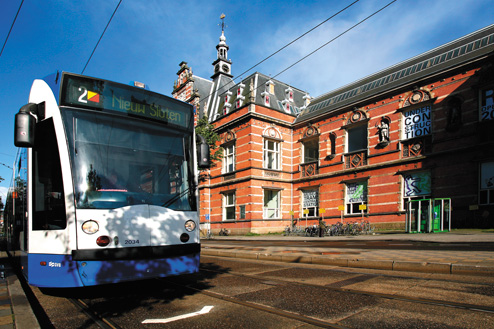Culture
Few capital cities boast a more cosmopolitan make-up than Amsterdam, with almost 150 nationalities registered in a population of under a million. Until the 1960s, society consisted of different 'pillars' (religious in origin) which co-existed side by side quite happily. But rapid secularisation and the most recent influx of immigration has triggered a huge debate about cultural identity and what it means (or could mean) to be Dutch. Traditionally egalitarian, tolerant, utilitarian, curious, trade oriented, respectful of privacy and with a sense of liberty, Dutch society is changing very rapidly and becoming increasingly consumer-driven. Like most of the world, it has been affected by international events post-9/11.There are innumerable 'dealing with the Dutch' cultural training programmes, workshops and publications, should you be wary of making a business or social gaffe. But you'll soon know, anyway.
Communication is very direct. The scale of directness sometimes comes as a shock to many newcomers, but can be extremely refreshing. Mutual respect is the key. Conspicuous consumption or ostentatious, affected, or high-handed behaviour generally, will be frowned upon (though there is a Millionaires magazine...) and this is not – except on Queen's Day – a nation of exhibitionists. There is however, space to be different. 'The characteristically Dutch form of liberty', said Amsterdam Mayor Job Cohen recently, 'involves more than just the freedom to express individual integrity; it also involves freedom from interference from others'. The latter, however, is disappearing and today's Dutch are unsure about how to deal with each other's freedoms. Anti-discrimination laws to ensure equal treatment for groups (women and homosexuals) have long been part of the Netherlands' 'multidimensional liberty'. Other policies towards drugs, prostitution, religion, marriage, abortion, euthanasia and alternative lifestyles have generally added to the Dutch reputation for being relaxed but pragmatic. Rules and regulations are also a cause for moaning. Put your rubbish in the wrong spot (or out too early), for example, and you can be fined. Work and home life are kept very separate (and the Dutch definitely work to live rather than the other way round). Holidays are generous and flexible working is common for both men and women. Although open and approachable, there's a punctilious approach to social arrangements. Meals, visits and other engagements are booked in advance in an orderly way. Always carry that diary (agenda), and doe maar gewoon... just act normal!
Communication is very direct. The scale of directness sometimes comes as a shock to many newcomers, but can be extremely refreshing. Mutual respect is the key. Conspicuous consumption or ostentatious, affected, or high-handed behaviour generally, will be frowned upon (though there is a Millionaires magazine...) and this is not – except on Queen's Day – a nation of exhibitionists. There is however, space to be different. 'The characteristically Dutch form of liberty', said Amsterdam Mayor Job Cohen recently, 'involves more than just the freedom to express individual integrity; it also involves freedom from interference from others'. The latter, however, is disappearing and today's Dutch are unsure about how to deal with each other's freedoms. Anti-discrimination laws to ensure equal treatment for groups (women and homosexuals) have long been part of the Netherlands' 'multidimensional liberty'. Other policies towards drugs, prostitution, religion, marriage, abortion, euthanasia and alternative lifestyles have generally added to the Dutch reputation for being relaxed but pragmatic. Rules and regulations are also a cause for moaning. Put your rubbish in the wrong spot (or out too early), for example, and you can be fined. Work and home life are kept very separate (and the Dutch definitely work to live rather than the other way round). Holidays are generous and flexible working is common for both men and women. Although open and approachable, there's a punctilious approach to social arrangements. Meals, visits and other engagements are booked in advance in an orderly way. Always carry that diary (agenda), and doe maar gewoon... just act normal!


-2.jpg)










